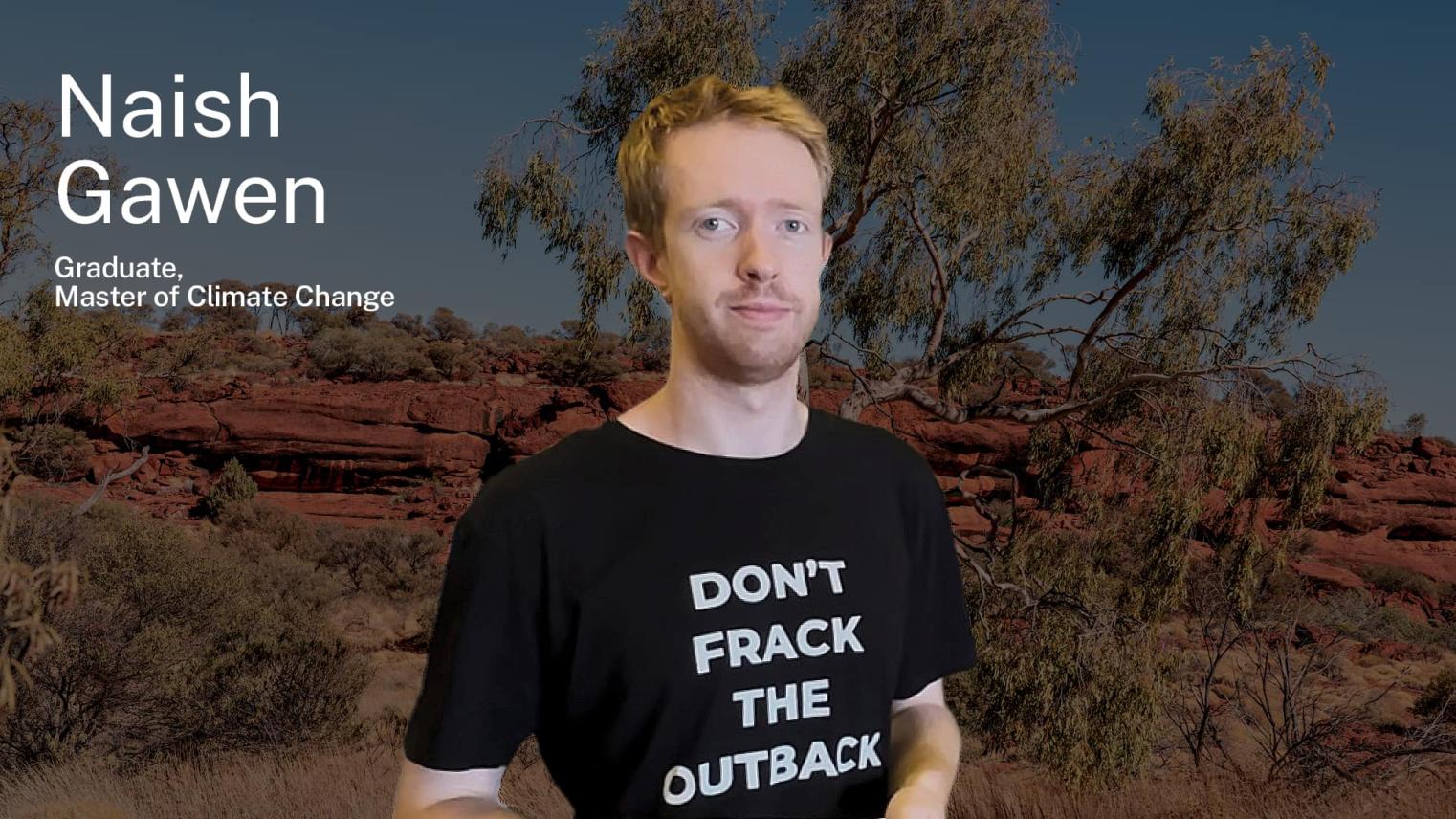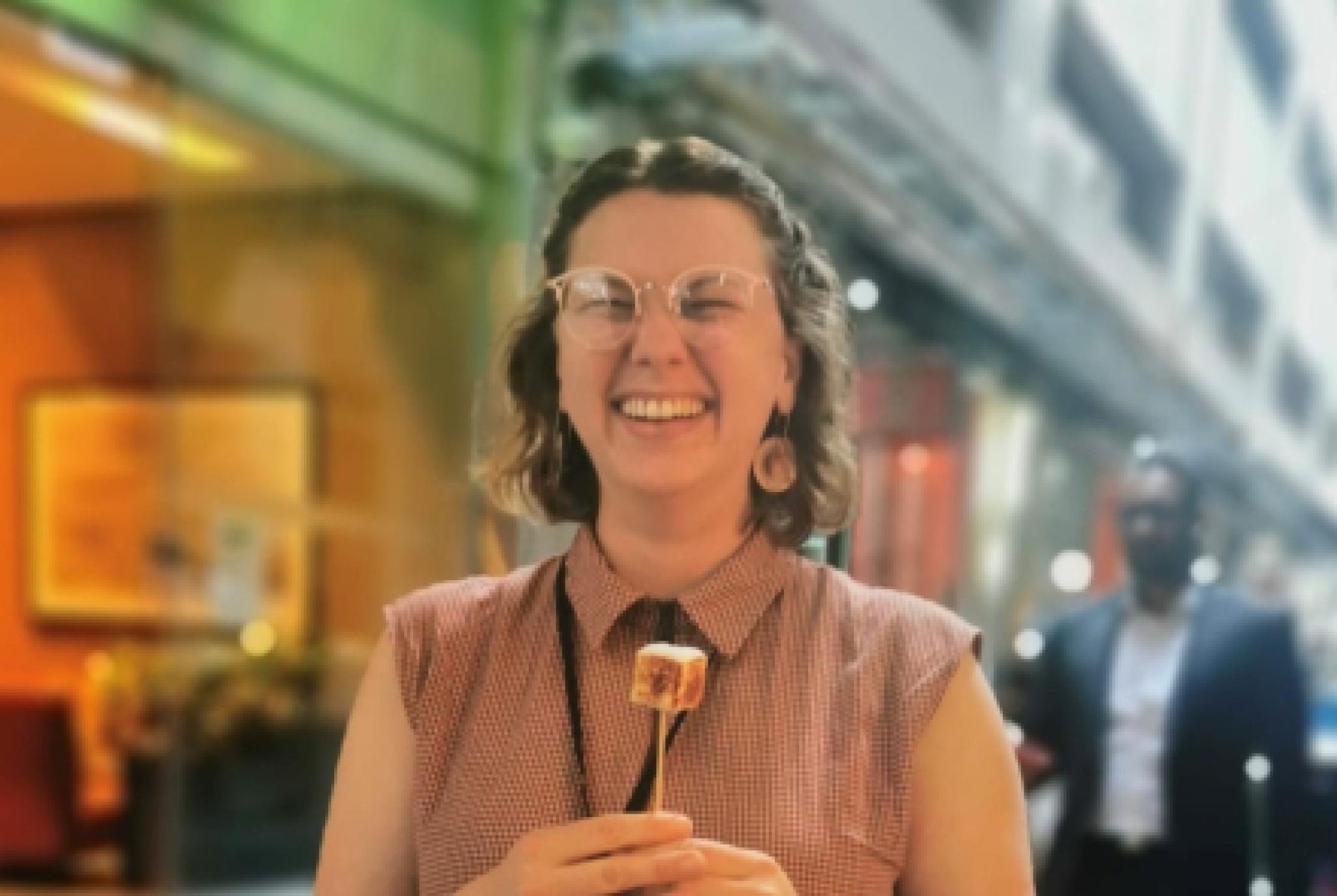Meet our graduates: Naish Gawen – clearing the way to a decarbonised future

Naish Gawen is deeply committed to environmental advocacy. Born in Adelaide, he works in Darwin as a policy and research officer at Environment Centre NT. His focus is working with communities to oppose fossil fuel expansion, and his passion for finding collective solutions to the climate crisis is the foundation of Naish’s professional and academic pursuits.
His experience in environmental advocacy and policy work motivated him to pursue academic studies in the economics and governance of climate change. His first choice was the Master of Climate Change program at the Crawford School of Public Policy at the Australian National University.
The program’s interdisciplinary nature, involving courses in science, economics, politics, health, and policy, was particularly appealing, as was the flexibility of the program. “The course allowed me to study the entirety of the course online, which was helpful as it meant I could continue living and working in Darwin”, he says.
At the Crawford School, Naish devoted himself to studying the economics of climate change, he says, “in order to get to the roots of why the transition away from fossil fuels isn’t happening as quickly as it needs to”.
“I wanted to explore the question of whether there are any inherent aspects to the way we make economic decisions that are preventing the dislodgement of fossil fuel interests from the centre of our economy”, he notes.
“I wanted to explore the question of whether there are any inherent aspects to the way we make economic decisions that are preventing the dislodgement of fossil fuel interests from the centre of our economy”
Naish found his experience at Crawford School was enriched by the differing perspectives offered by his peers. The academic staff also left a lasting impression. “The staff are extremely knowledgeable and hard-working”, he recalls. Additionally, he says the breadth of courses offered gave him the opportunity to explore obstacles to the decarbonisation process from multiple angles.
In his final semester, he got to explore this topic in depth in a research project where he examined capital accumulation in the offshore oil and gas industry.
“This research allowed me to deepen my understanding about how the barriers to effective action on climate lie in the capitalist social relations that govern the way decisions are made about the production and exchange of resources”, he explains.
Naish’s involvement in local policy issues has significantly shaped his perspective on the climate crisis as a global challenge to policymaking. He believes that the opposition by entrenched fossil fuel interests are an obstacle to decarbonisation, both locally and globally.
“Understanding the different regional variations of this problem has been a useful part of the Master of Climate Change degree”, he notes, reserving special praise for the expertise of scholars from Crawford’s Resources, Environment and Development Department in the politics of resource extraction in the Asia-Pacific. He points to their teachings about political ecology as being the most memorable part of his Crawford academic experience.
Naish advises future Master of Climate Change students at the Crawford School to immerse themselves in the course material to gain deeper insights into complex issues: “try and remain open to readings, ideas, and concepts beyond the immediate usefulness for your line of work”, he recommends.
“try and remain open to readings, ideas, and concepts beyond the immediate usefulness for your line of work”
“Many of the courses discuss topics of significance beyond specific policies and bring up profound questions about the way our societies are interacting with nature and resources. Don’t be afraid to fully engage”, he counsels.
Naish clearly took his own advice: he was awarded the Crawford School of Public Policy’s Garnaut Prize for achieving the highest mark in his Master of Climate Change cohort.
“Winning the Garnaut Prize is a validating way to end the Master’s program”, he says. “Hopefully it should stand me in good stead for any future opportunities where I seek to apply the knowledge I've gained at Crawford to environmental campaigns”.
Naish says that he will leverage his newfound climate policy expertise back at the Environment Centre NT in a new role in policy and research, where he will continue to campaign against the expansion of the fossil fuel industry and help articulate a more positive vision for the Northern Territory’s future.


